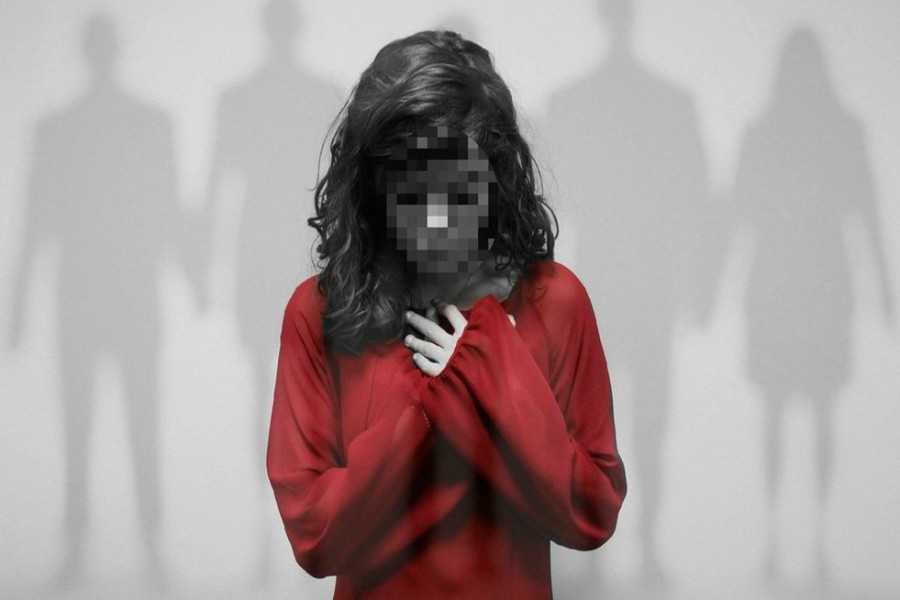Hoos Got Your Back?
Journalistic lapses lead to confusion, conflict and criticism at UVA and beyond
On Nov. 19, 2014, Rolling Stone magazine released an article chronicling the experience of a female student at the University of Virginia who claimed to have been sexually assaulted by fraternity members. People across the country reacted with horror. Sixteen days later, the story was retracted due to inconsistencies in the young woman’s story.
The detailed story of the female student, who was given the pseudonym “Jackie,” gave readers explicit detail of what supposedly occurred that night: she was sexually assaulted by five men for the purpose of a fraternity initiation. The story provoked outrage at the thought of a young girl being so gorily taken advantage of.
“At first, I was horrified. I couldn’t believe that something so disturbing could happen at my school, a place where I felt safe,” said Kayce Hyde, a St. George’s alumna and current UVA freshman. “When the article came out, word of it spread like wildfire. Everyone on grounds knew about it within minutes of its publication.”
Dean Brown, another St. George’s alumnus who attends UVA, reacted in a similar manner (Full disclosure: Dean Brown is the brother of one of the authors of this article).
“I was horrified at the actions of those individuals and could not believe how terrible people could act,” said Brown. “I don’t think anyone thought that what happened was okay.”
Brown said that initially there were many protests on campus surrounding the specific frat house, Phi Psi, where the suspected rape occurred.
“There were a lot of emails sent out by the president at first trying to calm everyone down. That week, they suspended all fraternities and sororities for the remainder of the semester,” said Brown.
About two weeks later, Rolling Stone released a retraction citing inconsistencies in Jackie’s story. When the story was written, Jackie had requested that the reporters not contact her supposed assaulters or friends she talked about in the article in order to respect her privacy.
Close friends of Jackie’s who were with her that night were interviewed by the Washington Post about a week after the retraction was released, and their story did not match the story that Jackie told. Phi Psi, the suspected fraternity, also released a statement saying that an internal investigation made by the fraternity and alumni also found many inaccuracies in the article. Investigations are still in progress, and people are now wondering if the entire article was fictitious.
The Columbia Journalism Review named the Rolling Stone article “the worst journalism of 2014” and the Poynter Institute has named the decision to not fact-check the article the “error of the year.”
“We apologize to anyone who was affected by the story and we will continue to investigate the events of that evening,” wrote Managing Editor Will Dana in the retraction.
UVA students have since spoken out against the article, claiming that it did not portray UVA accurately and permanently damaged the university’s reputation.
“Once the retraction came out, people rolled their eyes, but everyone still understood that sexual assault at college campuses in general is a big deal, regardless of whether that specific article was true or false,” said Brown. In spite of the questionability of the article, UVA has stood by their decision to implement policies to try to prevent future sexual assault.
Although the ban on Greek organizations at the campus was lifted, policies were still invoked to ensure safety. One of the organizations, the Inter-Fraternity Council, for example, now at parties requires sober brothers to have keys that access every room in the fraternity house, guest lists and information on alcohol being served.
“The administration remained firm on their stance to stop campus rape, which I think shows great integrity,” said Hyde.
This past summer, a student-led bystander awareness campaign, called “Hoos Got Your Back,” was launched at UVA. UVA students are nicknamed the “Wahoos,” “Hoos” for short. The name is commonly believed to derive from a “Wah-Hoo-Wah” chant used to cheer on the university’s athletic teams. The purpose of this program is to prevent sexual violence and misconduct.
“Whenever someone sees another hoo walking home alone at night, someone will always ask if they need help getting home,” said Hyde. “I have personally experienced this kindness multiple times.”
A large number of the student body at UVA have been fully supporting this program, with over 300 students pledging to take part in this endeavor at the program’s recent pledge day.
“In the midst of all the hardship UVA has experienced this semester, a great sense of community and family has been fostered,” said Hyde.
In addition to editorializing affecting the lives of UVA students, this situation also has the potential to affect the lives of sexual assault victims who share their stories in the future.
“It’s already so hard for sexual assault victims to come forward, and this will only make it harder,” said Brown. “They’re going to be discredited even more than before because now there’s reason not to believe them.”
“This is a shame because most women who claim to be victims of sexual assault are actually victims,” said Hyde. “When revealing what has happened to them, they deserve to be cared for unconditionally instead of scrutinized and questioned.”
As for eliminating sexual assault in the future, Hyde said, “Society as a whole needs to teach men and women how to better respect one another.”











